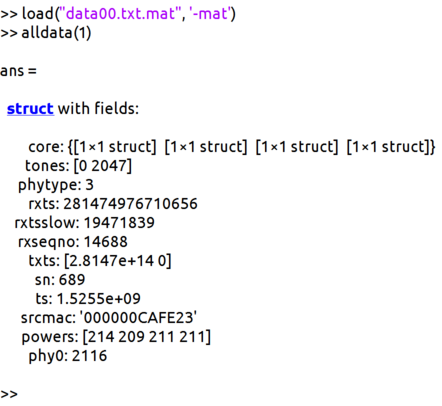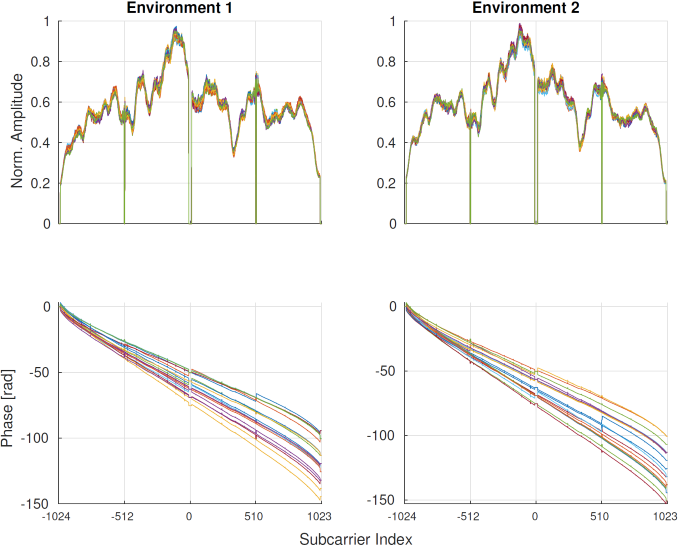CSI processing and Plotting
The tutorial reported here is backed-up by the files/resources hosted on our Gitlab in the csi_process_and_plot branch of the documentation_resources project.
1. Compile csireader
gcc -o csireader csireader.c -lpcap
2. Extracting CSI-data from PCAPs
The csireader extracts csi-data (amplitude and phase for each subcarrier) from all packets. The syntax for using the csireader is the following:
./csireader -f <input> -o <output> -a
For example, in this repo we have 2 pcap files that can be processed this way:
./csireader -f aoa_160ax_00.pcap -o data00.txt
./csireader -f aoa_160ax_01.pcap -o data01.txt
3. Process CSI-data for Matlab use
The Matlab script extract.m asks as input some raw (text-format) csi-data (as those output by csireader) and converts them into a structured format for ease of use in Matlab. The Matlab structured data are output on .mat files for later use (i.e., for plotting)
matlab -nodisplay -nosplash -nodesktop -r "extract "data00.txt"; exit;"
matlab -nodisplay -nosplash -nodesktop -r "extract "data01.txt"; exit;"
The above produces as output:
- data00.txt.mat
- data01.txt.mat
In particular, each mat file contains an alldata variables which stores, for each packet, a structure full of useful content :)

4. Plotting CSI with Matlab
Plotting Amplitude, for each subcarrier for each packet
load("data00.txt.mat", '-mat') %after this you have 'alldata' and 'packets' variables ;)
for nn = 1:packets
normdata = abs(alldata(nn).core{1}.nss{1}.data);
plot(normdata);
end
Plotting Phase in radiants, for each subcarrier for each packet
for nn = 1:packets
phasedata = unwrap(angle(alldata(nn).core{1}.nss{1}.data));
plot(phasedata);
end
A more complete Matlab script to generate a plot of both CSI and Phase processing both pcap files is available and is called plotterCSI.m
It produces a Figure like the following one:

5. [Alternative] Load .mat files and manipulate them with Python
from scipy.io import loadmat
mat = loadmat("data00.txt.mat", struct_as_record=False, squeeze_me=True)
print(mat.keys())
print(mat['packets'])
print(mat['alldata'])
print(mat['alldata'][0].core[0].nss[0].data)
More on this alternative here: